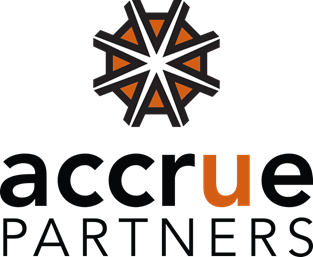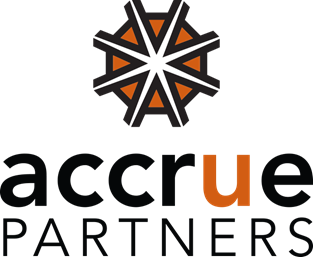As the artificial intelligence (AI) tool ChatGPT set the record for the fastest-growing consumer application in history in January 2023, more consumers, professionals and business owners have shown interest in the tool. AI’s roots date back to the 1950s, but it continues to grow more influential as more data is created and accessed to improve AI’s functionality daily.
For both employers and professionals who want to have long and successful careers, there are lots of questions about how AI will shape future workplaces. Here are four ways AI may impact jobs and workplaces in the future.
1. Technology Expertise Continues to Be In-Demand
It’s no secret that technology-driven AI is driving demand for technology-focused skills. According to the U.S. Bureau of Labor Statistics (BLS) Occupational Outlook Handbook, the employment outlook for information technology and computer-related professions is highly promising, with a projected 15% increase between 2021 and 2031.
The demand for technology-focused skills is growing at a much faster pace than the average rate for all professions, making the technology sector a promising field for career-starters and professionals looking to switch careers.
To acquire in-demand job skills, pursuing formal education in technology or taking online courses through platforms like Coursera and edX is a wise choice. If you want to strengthen your AI expertise, subjects such as machine learning, natural language processing (NLP), data science, and deep learning are worth exploring. In a world where AI is trending, even roles that are not AI-specific may require these skills, making them a top priority.
2. AI Will Decrease Demand in Various Areas
A recent MIT Work of the Future study found that AI will eliminate the demand for a couple of key areas. These include:
- Routine data processing, such as inputting store transactions
- Predictable physical work, such as assembly line production
While AI will likely to continue to eliminate positions and job duties focused on these areas, the advantage is that workers whose time used to be taken up doing this work can move on to other responsibilities. For example, a store manager who used to spend hours on transactions can dedicate that time instead to improving operations.
For people whose work has involved routine tasks, it’s helpful to think about how to pivot now. That might be by training to learn new skills that can apply to the same job or by seeking out different types of work altogether.
3. AI Will Become an Integral Part of Business Strategy
For most business leaders, AI concerns land high on the list of priorities. A recent “CIO vision 2025: Bridging the gap between BI and AI” report by MIT Technology Review Insights found:
- 68% of chief information officers (CIOs) say unifying their data platform for AI and analytics is crucial.
- 94% of CIOs say they’re already using AI in their lines of business, and more than half expect widespread AI adoption by 2025.
- 78% of CIOs say scaling AI and machine learning use cases to create business value is their top enterprise data strategy over the next 3 years.
That means most enterprise companies should assume their competitors are exploring AI capabilities and are integrating AI into their business strategy. The next few years are expected to be critical for AI adoption in knowledge worker industries.
4. AI Complements Knowledge Worker Roles
Microsoft and Forrester Consulting released a report on how AI will impact knowledge worker industries like accounting, finance, digital, creative, human resources and corporate support. The main findings were:
- AI’s facilitation of the free flow of information helps knowledge workers complete tasks more efficiently.
- AI helps knowledge workers find relevant expertise more easily to make decisions faster and more confidently.
- AI insights can accelerate productivity by discovering functionality and completing various tasks.
To illustrate how AI can make knowledge more efficient, 50% of knowledge workers reported workflow interruptions due to an inability to access or find the needed data. Since AI can speed up the precision of data quality and access to data, it can help workers avoid costly workflow interruptions.
Organizations can identify common workflow pain points knowledge workers face and use AI tools to address those. According to the MIT study, here’s a look at how many departments used AI for wide- scale or critical functions in 2022 and what percentage expect to by 2025.
- Marketing and advertising: 25% in 2022, projected 64% by 2025
- Finance: 54% in 2022, projected 64% by 2025
- Product development: 34% in 2022, projected 67% by 2025
- IT: 67% in 2022, projected 71% by 2025
- HR: 33% in 2022, projected 66% by 2025
The top ways CIOs benefitted from AI in 2022 were: 1) better security and risk management (31%); 2) faster product development/time to market (20%); and 3) improved efficiency (14%). By 2025, expected benefits shift dramatically to business revenue and results, with the expected benefits being: 1) increased revenue (30%); improved efficiency (26%); and 3) reduced costs (16%).
AI: The Future Is Now
Artificial intelligence undoubtedly affects diverse industries, making many roles more efficient and productive while rendering specific skills obsolete. Each industry will be affected by AI differently. Still, there’s one thing most professionals and employers have in common: AI will affect their jobs or companies, and it’s important to adapt.
Continued education and an eye on how AI impacts your desired industry and job can help you stay prepared. Professionals can communicate with their employers about skills development to improve their work and remain valuable assets
Are you looking for work? Connect with the AccruePartners recruiting team for relevant job opportunities.


CONTACT US
1000 W. Morehead Street,
Suite 200, Charlotte, NC 28208
(704) 632-9955
Send info@accruepartners.com
FOLLOW US
© AccruePartners. All Rights Reserved.2023
CONTACT US
1000 W. Morehead Street,
Suite 200, Charlotte, NC 28208
(704) 632-9955
info@accruepartners.com
General
FOLLOW US






